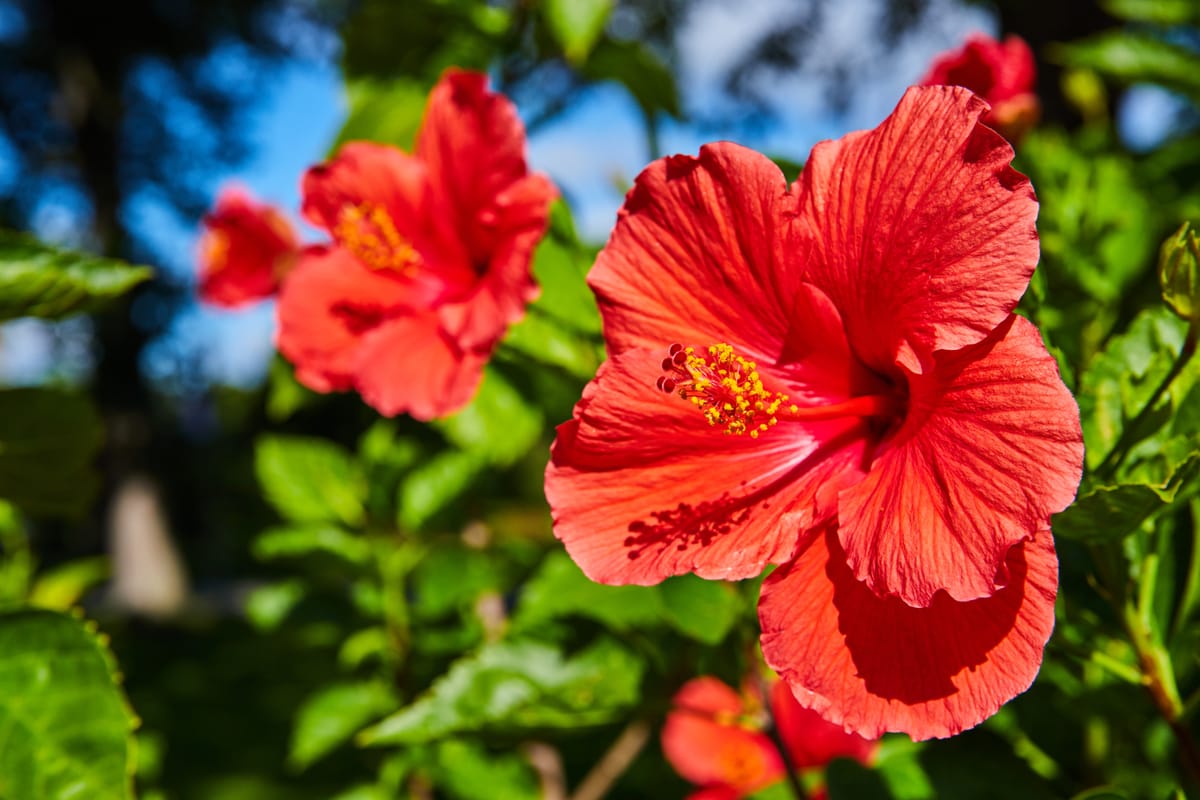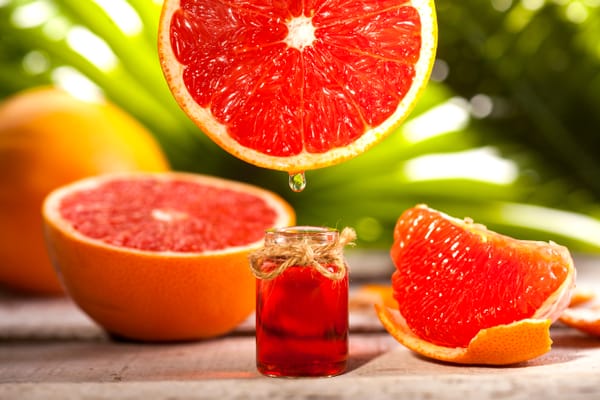Is Hibiscus Good for Gut Health? Find Out Here
Discover if hibiscus is good for gut health and learn how this vibrant tea can benefit your digestive system.

Have you ever wondered, "Is hibiscus good for gut health?" Well, you're in the right place. This colorful flower isn't just a pretty face; it's packed with benefits that might surprise you. From its rich antioxidant properties to its anti-inflammatory effects, hibiscus could be the natural remedy your digestive system needs.
Many of us turn to nature when we need a little help with our health issues. But amidst all the herbs and teas out there, why should hibiscus catch your eye? Let's dive into what makes this tart-flavored tea so special and whether it can truly make a difference in your gut health journey.
Table of Contents:
- What Is Hibiscus Tea and How Is It Made?
- Potential Health Benefits of Hibiscus Tea
- Hibiscus Tea and Heart Health
- Hibiscus Tea and Liver Health
- Hibiscus Tea and Weight Management
- Hibiscus Tea and Blood Sugar Control
- Potential Side Effects and Interactions of Hibiscus Tea
- How to Incorporate Hibiscus Tea into Your Diet
- Conclusion
What Is Hibiscus Tea and How Is It Made?
Hibiscus tea is an herbal infusion made from the vibrant crimson calyces of the Hibiscus sabdariffa plant. This tropical flowering shrub is native to parts of Africa and Asia. The hibiscus plant produces large, showy blossoms that can be up to 6 inches in diameter. But it's the cup-shaped calyces at the base of the flowers that are harvested to make hibiscus tea.
The Hibiscus Plant
The Hibiscus sabdariffa plant goes by many names, including roselle, red sorrel, and sour tea. It's an annual or perennial shrub that can grow up to 7-8 feet tall. The plant has smooth, cylindrical, typically red stems and alternately arranged leaves that are deeply lobed. The flowers are borne singly in the leaf axils and have 5 petals that can be red, pink, or white with a dark red spot at the base.
Preparing Hibiscus Tea
To make hibiscus tea, the dried calyces are steeped in boiling water for several minutes, resulting in a deep crimson-colored herbal infusion. The longer the steeping time, the more intense the color and flavor. I like to use about 1-2 tablespoons of dried hibiscus calyces per cup of water. I'll let it steep for a good 5-10 minutes to really extract all the goodness. You can enjoy hibiscus tea hot or iced, and it's delightful with a touch of honey or other natural sweetener.
Hibiscus tea can be enjoyed hot or iced. The longer the steeping time, the stronger the flavor and higher the concentration of beneficial compounds.
Flavor Profile of Hibiscus Tea
If you've never tried hibiscus tea before, you're in for a treat. It has a unique, tart, almost cranberry-like flavor that is truly refreshing. Some describe the taste as similar to lemonade or a fruity red wine. It can pucker your mouth a bit with its astringency. I find the tanginess really perks me up. The deep ruby red color is equally alluring. It's no wonder hibiscus is sometimes used as a natural food coloring. The vibrant hue hints at the tea's potent antioxidants.
Potential Health Benefits of Hibiscus Tea
Hibiscus tea isn't just delicious - it may offer some impressive health benefits too. The ruby red infusion contains beneficial plant compounds that have antioxidant, anti-inflammatory, and even anticancer properties.
Antioxidant Properties
Hibiscus is loaded with antioxidants like anthocyanins, quercetin, and chlorogenic acid. These compounds help neutralize free radicals and combat oxidative stress that can damage cells and contribute to chronic diseases. In fact, hibiscus tea has been shown to have one of the highest antioxidant contents of any herbal infusion. One study found that hibiscus tea had greater antioxidant capacity than even green tea and black tea (1).
Anti-inflammatory Effects
Inflammation is a normal immune response, but chronic inflammation is linked to many diseases. The antioxidants in hibiscus also have potent anti-inflammatory properties. Animal studies suggest that hibiscus extract can inhibit inflammatory enzymes and pathways in the body (2). By reducing inflammation, hibiscus may help protect against inflammatory diseases like rheumatoid arthritis, ulcerative colitis, and even cancers.
Potential Anticancer Activity
Some exciting test-tube studies have hinted at the anticancer potential of hibiscus. The anthocyanins and polyphenols in hibiscus have been shown to inhibit the growth of various cancer cells, including those of the breast, mouth, and prostate (3). Of course, more research in humans is needed to confirm these effects. But I find it promising that this tasty beverage could have cancer-fighting properties. It gives me all the more reason to sip hibiscus tea regularly.
Hibiscus Tea and Heart Health
As someone who has a family history of heart disease, I'm always looking for natural ways to support my cardiovascular health. Hibiscus tea has quickly become one of my go-to beverages for its potential heart health benefits.
Lowering Blood Pressure
High blood pressure is a major risk factor for heart disease and stroke. But studies suggest that regularly drinking hibiscus tea can significantly lower blood pressure. In one study, adults with mild hypertension who drank 3 cups of hibiscus tea daily for 6 weeks had greater reductions in systolic blood pressure compared to a placebo (4). Another study found that hibiscus tea was as effective as a common blood pressure medication, with fewer side effects (5). As someone who prefers natural solutions, I was thrilled to learn this. I now aim to drink a few cups of hibiscus tea a day as part of my heart-healthy lifestyle.
Improving Cholesterol Levels
In addition to its blood pressure-lowering effects, hibiscus tea may also improve cholesterol levels. High LDL ("bad") cholesterol and low HDL ("good") cholesterol are other key risk factors for heart disease. Several studies have shown that hibiscus extract can decrease total and LDL cholesterol while increasing HDL cholesterol (6). In one study, people with metabolic syndrome who took hibiscus extract for 12 weeks had significant improvements in their lipid profiles (7). I love that something as simple as hibiscus tea could help keep my cholesterol levels in check. Combined with a balanced diet and regular exercise, it's an easy and delicious way to promote heart health.
Hibiscus Tea and Liver Health
Our livers work hard every day to detoxify our bodies, metabolize fats, and store essential vitamins and minerals. So it's crucial that we take good care of this vital organ. Turns out, hibiscus tea may give our livers some extra TLC.
Protecting Against Liver Damage
Animal studies have found that the antioxidants in hibiscus can help protect the liver from damage caused by toxins and oxidative stress. In one study, rats with chemically-induced liver damage showed significant improvements in liver function after being treated with hibiscus extract (8). While more human research is needed, I find it reassuring that my daily cups of hibiscus tea could be supporting my liver health. As someone who enjoys the occasional cocktail, I feel like the tea helps balance things out a bit.
Reducing Fatty Liver Disease
Non-alcoholic fatty liver disease (NAFLD) is a condition characterized by excess fat accumulation in the liver. It's becoming increasingly common, affecting up to 25% of people globally (9). Promisingly, hibiscus extract has been shown to reduce the build-up of liver fat and improve liver steatosis (fatty liver) in animal models of NAFLD (10). The exact mechanisms are still being researched, but the antioxidant and anti-inflammatory effects of hibiscus likely play a role. As rates of fatty liver disease continue to rise, I'm hopeful that hibiscus tea can be part of the solution. Of course, it's not a magic bullet - maintaining a healthy weight, exercising, and limiting alcohol are also key. But every little bit helps.
Key Takeaway:
Hibiscus tea, made from the vibrant calyces of Hibiscus sabdariffa, offers a tart flavor and potential health benefits. This crimson infusion is rich in antioxidants, may reduce inflammation, support heart health by lowering blood pressure and improving cholesterol levels, and could protect liver function.
Hibiscus Tea and Weight Management
If you're looking to shed some pounds, hibiscus tea may be just what you need. Several studies suggest that drinking hibiscus tea can support weight loss efforts and help reduce body fat.
A human trial in Taiwan used hibiscus extract for 12 weeks and all subjects saw a change. Results included a reduction in overall body weight, body fat, and hip to waist ratio.
It turns out, hibiscus contains anti-obesity properties that activate the AMPK compound, which is found in many weight loss drugs. Once activated, it stimulates the breakdown of fats. Hibiscus tea also has zero calories (if you don't add sweeteners), making it the perfect replacement for sugary drinks like sodas and fruit juices. Swapping out those high-calorie beverages for hibiscus tea can help cut calories and promote weight loss. But the benefits don't stop there. Hibiscus tea can also help regulate blood sugar levels, which brings us to our next point...
Hibiscus Tea and Blood Sugar Control
If you struggle with high blood sugar or metabolic syndrome, listen up. Hibiscus tea may help regulate blood sugar levels by improving insulin sensitivity and reducing insulin resistance. One study found that consuming hibiscus tea for one month led to significant reductions in fasting blood sugar and insulin levels in people with type 2 diabetes.
We already know that hibiscus lowers your blood sugar, but as a bonus side effect, this actually helps prevent weight gain.
Low blood sugar decreases appetite and boosts metabolism, preventing overeating and further weight gain. It's a win-win. Drinking hibiscus tea may also improve several markers of metabolic syndrome, including blood pressure, cholesterol levels, and blood sugar control. So if you're at risk for heart disease, stroke, or diabetes, adding hibiscus tea to your diet could offer some extra protection.
Potential Side Effects and Interactions of Hibiscus Tea
While hibiscus tea is generally safe, there are a few things to keep in mind:
Pregnancy and Breastfeeding
Pregnant and breastfeeding women should avoid drinking hibiscus tea or consult with their healthcare provider first. Some studies suggest that hibiscus may have hormone-like effects that could be harmful during pregnancy.
Low Blood Pressure
If you already have low blood pressure, be cautious when drinking hibiscus tea as it may lower it further. Keep an eye on your blood pressure and talk to your doctor if you have any concerns.
Medication Interactions
Hibiscus tea may interact with certain medications, like diuretics and blood pressure drugs. Always check with your healthcare provider before adding hibiscus tea to your routine, especially if you take any medications.
It's crucial for individuals taking medications to consult with their healthcare provider before adding hibiscus tea to their diet to avoid potential interactions.
While these potential side effects and interactions may sound scary, for most healthy adults, hibiscus tea is a safe and delicious way to boost overall health. Just be smart, listen to your body, and talk to your doc if needed.
How to Incorporate Hibiscus Tea into Your Diet
Ready to give hibiscus tea a try? Here's what you need to know:
Recommended Dosage
There's no official recommended dosage for hibiscus tea, but most studies have used 1-3 cups per day. Start with 1 cup and see how you feel, then gradually increase if desired.
Combining with Other Teas
Hibiscus tea is delicious on its own, but it also plays well with others. Try blending it with green tea, mint tea, or chamomile tea for a flavorful and healthy combo.
Recipes Using Hibiscus Tea
Hibiscus tea is incredibly versatile - it's not just for sipping. You can use it in all sorts of recipes, like:
- Hibiscus iced tea
- Hibiscus tea lemonade
- Hibiscus tea smoothies
- Hibiscus tea cocktails or mocktails
- Hibiscus tea popsicles
Get creative and have fun experimenting with this delightful, health-boosting ingredient. Your taste buds (and your body) will thank you.
Key Takeaway:
Hibiscus tea supports weight loss by activating anti-obesity properties, reducing body fat, and cutting calories when replacing sugary drinks. It also helps regulate blood sugar levels and improve metabolic health. While generally safe, consult your doctor if pregnant or on medication to avoid potential interactions.
Conclusion
The truth about "is hibiscus good for gut health" is quite enlightening. Contrary to popular belief fueled by Hollywood’s depiction of herbal remedies as mysterious or ineffective, science tells us otherwise. Hibiscus has proven benefits ranging from antioxidants to aiding digestion without causing harm.
This isn't some far-fetched idea but something backed by studies showing real improvements in overall well-being. So next time you're brewing a cup of tea, consider making it hibiscus—it might just be what your body craves!




